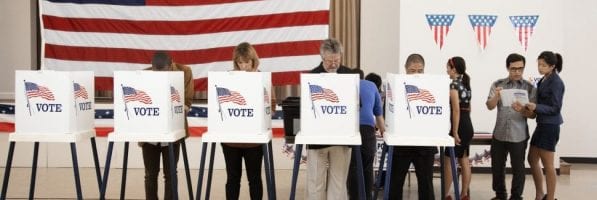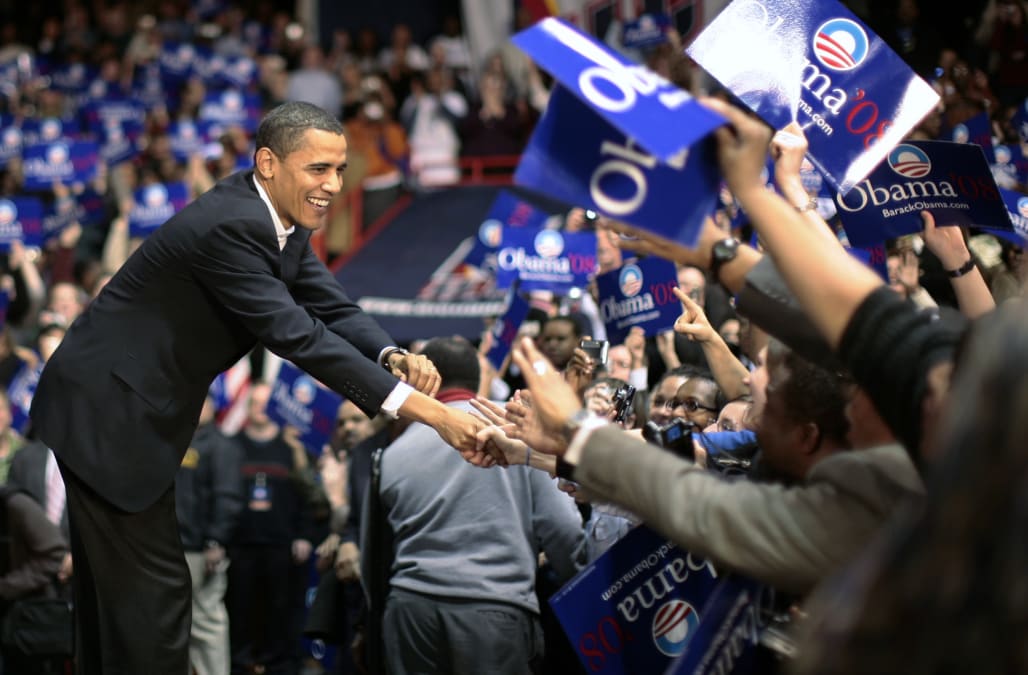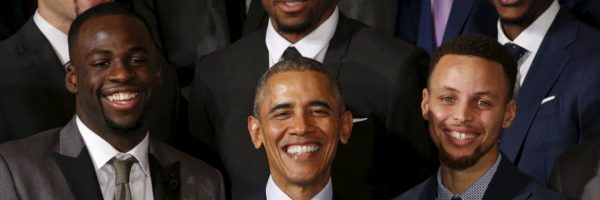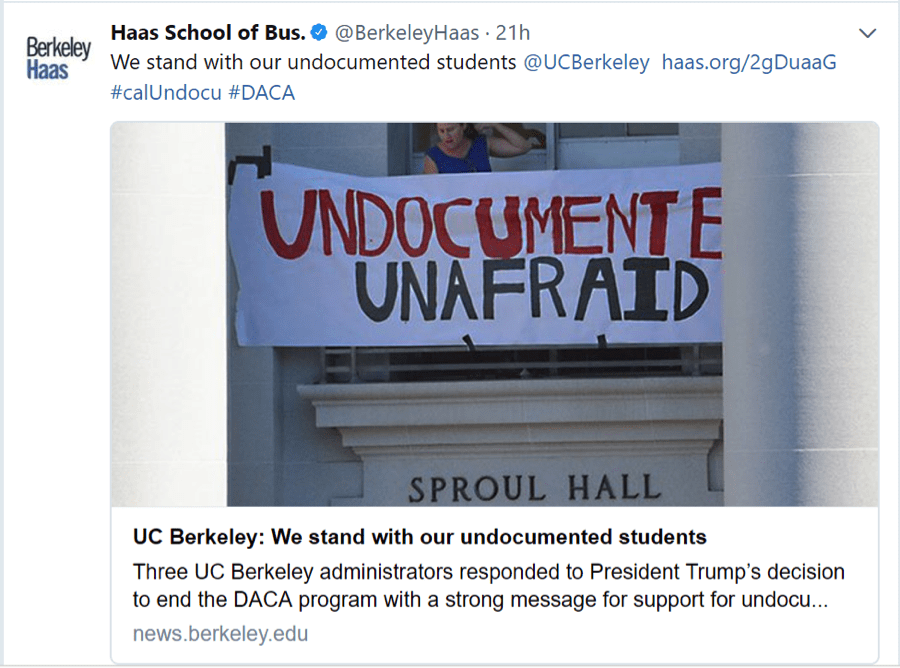Election Day: What Schools are Saying

It’s election day in the U.S., so for our international readers: whoops! Let’s check out some of the day’s big stories coming out of U.S. schools.
Engineered Electioneering – Kellogg Insight
“When it comes to persuading voters, the timing of a candidate’s message may be as important as the message itself,” Kellogg Insight explains.
The overall conclusion of how to approach election messaging comes from new research by Angela Y. Lee, Professor of Marketing at the Kellogg School of Management. With Concordia University of Montréal Assistant Professor Hakkyun Kim and University of Minnesota Professor Akshay R. Rao, the trio’s research finds surprising details that former U.S. President Barack Obama successfully utilized in 2008.
In short, the group’s research finds that voters are more responsive to grander, large-scale ideas the further the election is away. However, as Election Day draws closer, more concrete ideas take precedent.
“[Obama] was emphasizing abstract themes and capturing the imagination of caucus goers, while his opponents were capturing the attention of the D.C. establishment, who then spent a fair amount of time dissecting and critiquing their various plans to fix health care, get out of Iraq, and what have you,” Rao says of Obama’s 2008 campaign.

Northwestern Kellogg research finds that sweeping campaign messaging is more effective when Election Day is further away; a campaign tactic utilized heavily by Barack Obama in 2008.
The trio note that this approach goes beyond politics. In fact, they argue, the methods can be utilized successfully by marketing in other industries.
Insights from the study, Lee notes, may help consumer goods marketers develop more persuasive messages and may also help public health officials design more effective campaigns against such health threats as obesity and smoking. For example, she says, messages that urge people to lose weight or quit smoking as an immediate goal should provide concrete information on how the objective can be achieved.
You can find out more about the research here.
Even a Few Bots Can Shift Public Opinion in Big Ways – The Conversation
As the political landscape rapidly shifts in the U.S. and elsewhere, the internet bot game becomes increasingly important. In The Conversation, Tauhid Zaman, Associate Professor of Operations Management, MIT Sloan School of Management analyzes just how much of an impact these elements may have on Election Day.
His research found that bots had a much smaller presence than others may have speculated: “less than 1 percent of the active Twitter users.”
In addition, Zaman’s work, with his students net another surprising result: Twitter bots helped Hillary Clinton in 2016 more than Donald Trump.
The reason for this, Zaman concludes, is that the effectiveness is not due to the volume, but rather how much individual bots perform. The research finds that there were more Trump-supporting bots in ’16, however, Clinton bots tweeted more on average. He does, however, note that the research only gives a small window into the potential impact bots have.
It’s worth noting that our analysis looked at a relatively small number of users, especially when compared to the voting population. And it was only during a relatively short period of time around a specific event in the campaign. Therefore, they don’t suggest anything about the overall election results. But they do show the potential effect bots can have on people’s opinions.
Click here to read more about Taman’s work.
The Election Just Ahead – The Harvard Gazette
Harvard staff writer Christina Pazzanese, in her newest piece for The Harvard Gazette, details the relative uncertainty of what may happen on Election Day this year. “With polling often inaccurate in the last election, no one can confidently predict what the results will be this time, despite any evident trend lines going in,” she writes.
The focus of her piece lies on three principle elements: youth turnout; hacking; and ideology. On youth turnout, Pazzanese immediately notes that youth demographics have the worst statistical rates of turnout cycle after cycle in the U.S. With infused commitment to voter registration at the Boston university, turnout could reach a record high. However, like Pazzanese says, polling can be “often inaccurate.”
If results from a new Harvard Institute of Politics (IOP) Youth Poll are accurate, turnout among Harvard students could reach a high. Forty percent of voters age 18‒29 say they will definitely vote in the midterm, according to the findings released Oct. 29. Though poll director John Della Volpe said the organizers don’t expect that many to turn out, past trends indicate that, even accounting for the usual gap of -7.5 points between those who say they will vote and those who actually do, the figure suggests young voters will turn out in significantly greater numbers than in many years past. The only midterms in which young voters turned out at a greater rate than their typical 18‒20 percent were in 1986 and 1994, he said.
In regards to voter ideology, Pazzanese paints a more ambiguous outlook.
“Amid such rapid change, political analysts and practitioners have struggled to keep pace, especially since 2016 showed how off-track most had gotten. Many hoping to understand how voters think and behave now recognize that polling and opinion data aren’t delivering a rich enough portrait of where the electorate is moving ideologically, and why.”
Tackling ideology movement in 2018 is endearingly challenging, but left-leaning political data service Catalist, co-founded by current CEO Laura Quinn, a visiting fellow at the Ash Center for Democratic Governance and Innovation at HKS, may have a new approach. The company organized voters into less-than-traditional groups, by approaching potential voters in a different manner.
“So instead of asking questions about expected topics like the Affordable Care Act or gun ownership, which cause people to self-sort into partisan groups, Catalist asks about things that don’t signal an obvious right or left response, but gets at someone’s values. These are queries like ‘Is it morally good or bad to leave a dog out in the rain, or for a soldier to refuse to obey a potentially illegal order from commanders?'” Pazzanese writes. The results are as follows:

Quinn notes the grouping is not a total encapsulation of the electorate, however. “None of these things perfectly explains why people are the way they are. People are complicated, and they change. It’s the constellation of things that you believe that give you a sense of the person.”
You can read more about election day from The Harvard Gazette here.
Top Business Schools Respond to Repeal of Diversity Guidelines

Diversity in the college admissions process was dealt a blow in early July when the Trump administration withdrew a guidance that encouraged affirmative action in regards to enrollment. The move was announced when the departments of Justice and Education retracted several letters and memos that advised schools on how they could consider diversity in admissions and other various decisions. Continue reading…
Barack Obama to Speak at 12th Annual MIT Sloan Sports Analytics Conference

It was announced earlier this week that former U.S. President Barack Obama will be among the honorary speakers at this year’s MIT Sloan Sports Analytics Conference.
The 12th annual event arrives at the Boston Convention and Exhibition Center February 23 and 24. Alongside Obama, the highly publicized conference will feature some of the biggest names in the sports industry, including: former Microsoft CEO and Los Angeles Clippers owner Steve Ballmer, Major League Baseball commissioner Rob Manfred, National Hockey League commissioner Gary Bettman, National Basketball League commissioner Adam Silver, former professional athletes like Steve Nash and Alex Rodriguez, and Seattle Storm point guard and U.S. Olympian Sue Bird, among others.
Co-founded by MIT Sloan School of Management MBA graduate Daryl Morey, the current general manager of the Houston Rockets, and Kraft Analytics Group CEO Jessica Gelman in 2006, the annual conference has transformed into one of the most formative sports business events in the world. Since its inception, the event has spawned and popularized numerous movements in the industry, including basketball’s strategic revolution (they call it MoreyBall for a reason).
During his tenure in the White House, Obama’s sports fandom became a much-publicized part of his public persona, appearing on ESPN throughout his two terms to discuss the NCAA tournament, college football playoffs, and more.
.@BarackObama, the 44th President of the United States, will speak at @SloanSportsConf February 23. We are pleased to welcome President Barack Obama, a well-known sports fan. Visit https://t.co/2E9wO8Qo5K for more details #SSAC18 #analyzethis
— Sloan Sports Conf. (@SloanSportsConf) January 6, 2018
Obama will be speaking on the first day of the conference, Friday, February 23. Alongside the notable speakers, the conference features career help seminars, a case competition, an in-depth multi-day look into esports, a hackathon, and much more.
The MIT Sloan Analytics Conference website reads:
“At our roots, we are about education and our goal is to provide more opportunities for sharing industry successes, to create forums to discuss the most challenging topics of the day, and to continue identifying new ideas. As a conference we are firmly committed to innovation. Each year, we have added new elements to push the larger analytics conversation forward. Recent years have seen advances from the Research Paper competition started in 2010 to the popular and successful Hack-A-Thon, the introduction of an esports room, doubling the number of Competitive Advantage talks, expansion of the Startup Tradeshow competition, and introduction of industry-specific workshops. Despite our past successes, we firmly believe that the best is yet to come.”
Find out more information about the event and register today.
Howard University Hosting Mandela Washington Fellowship Students

For the fourth consecutive year, the Howard University School of Business has partnered the Mandela Washington Fellowship for Young African Leaders, hosting 25 up-and-coming African leaders for a six-week intensive beginning this week.
Business, University Leaders Speak Out Against DACA Repeal

When the Trump administration formally announced yesterday that it would end the Deferred Action for Childhood Arrivals program (DACA)—putting a six-month expiration date on legal protections granted to approximately 800,000 people who entered the U.S. illegally as children—universities and business leaders were quick to condemn it. Indeed, vocal defense of the “Dreamers,” as those in the DACA program are called, resounded from Silicon Valley to the Ivy League.
“Dreamers contribute to our companies and our communities just as much as you and I,” tweeted Tim Cook, CEO of Apple and an MBA graduate of Emory’s Goizueta Business School. “Apple will fight for them to be treated as equals.” In an earlier statement Cook noted that Apple employs hundreds of people covered by DACA.
Facebook CEO Mark Zuckerberg released his own statement on his personal Facebook page. “This is a sad day for our country,” he wrote. “The decision to end DACA is not just wrong. It is particularly cruel to offer young people the American Dream, encourage them to come out of the shadows and trust our government, and then punish them for it.” He added that the young people covered by DACA contribute to their communities and to the economy. “I’ve gotten to know some Dreamers over the past few years, and I’ve always been impressed by their strength and sense of purpose. They don’t deserve to live in fear.”
DACA was enacted in 2012 under former President Barack Obama by executive order, allowing individuals who were brought to the United States as children or teens before mid-2007 to apply for protection from deportation and work permits. To apply, they had to be younger than 31 at the time the program was created, have come to the U.S. before turning 16, and have lived in the U.S. for at least five years. The U.S. Citizenship and Immigration Services reports that roughly 788,000 have had their requests for DACA status accepted.
University and Business School Leaders Denounce DACA Repeal
A Center for American Progress survey of roughly 3,000 DACA recipients found that approximately 72 percent of respondents were in higher education, 13 percent of those pursuing master’s degrees. And leaders in higher education—including at several leading business schools—were every bit as vocal as major business leaders in calling out the Trump administration’s decision and pledging their support to Dreamers.
Geoffrey Garrett, dean of the University of Pennsylvania’s Wharton School, called the repeal of DACA “bad for the economy and bad for society” in a tweet that also expressed his support for an official statement issued earlier in the day by University of Pennsylvania President Amy Gutman.

Maryellen Reilly, Wharton Deputy Vice Dean for Admissions, financial aid and career management, quoted from Gutman’s statement in her own tweet: “At Penn, we are committed to providing a safe and welcoming environment for all of our students and we will do everything we can…”

Columbia University, home to Columbia Business School (CBS), issued its own statement in opposition to the repeal of DACA. “Columbia unequivocally opposes the ending of DACA and is working with others in higher education to urge Congress and federal officials to reinstate DACA’s protections and protect the rights of those with DACA status during and after the ‘wind-down’ process that has been announced,” it read. It went on to add that in keeping with Provost John Henry Coatsworth’s November pledge, “our policies and plans aim to ensure that students who had DACA coverage are able to proceed unimpeded with their studies and that all students in the community feel safe and understand beyond question that Columbia’s dedication to inclusion and diversity, including of undocumented students, is and will remain unwavering.” CBS quickly retweeted its parent university’s stance and linked to the full statement.
And the Haas School of Business at the University of California at Berkeley tweeted: “We stand with our undocumented students.” That tweet linked to a statement issued by three ranking university administrators—Chancellor Carol Christ, Vice Chancellor for Equity & Inclusion Oscar, and Undocumented Student Program Director Meng So—that called on the Berkeley community to stand with undocumented scholars at the university and beyond.

“At a time when our campus and community values are being challenged by the prevailing national rhetoric and policy making, we must deepen our resolve and commitment to our principles and to each other,” read the Berkeley administrators’ statement. “During these difficult moments, we must defend strongly held values of dignity, diversity and community.”
The Kelley School of Business at Indiana University at Bloomington, for its part, retweeted its parent university’s official statement and pledge to support all its students.

In the statement, IU President Michael A. McRobbie called out the decision to end DACA “especially in light of the administration’s prior statements expressing support for young people protected by DACA and the strong bipartisan support that exists nationwide for maintaining the program.”
McRobbie went on to underscore the university’s support of all its students. “We believe that all of our students, regardless of their background or country of origin, bring to our campuses unique perspectives and experiences that enrich our living and learning communities,” he wrote. “In doing so, they reflect who we are—and what we strive to be—as a university that provides all students with the opportunity to expand their knowledge and succeed in a place where they feel valued, respected and at home.”
In fact, IU features an entire website—DACA @ IU—dedicated to helping DACA students at the university. On the website, the university states that though bound by state and federal laws, it will take steps to support all IU students regardless of documentation and will only inquire into a person’s immigration status when required by law. IU also provides counseling and support to students who have immigration-related concerns, including connecting students with available resources for educational and living expenses.
Penn, Columbia, Berkeley, and IU are just a few of countless schools that spoke out against the Trump administration’s decision. Prior to the final decision to end DACA, 600 college and university presidents signed a statement promoting DACA back in November. Even more recently, Duke University’s President Vincent E. Price wrote a letter in support of the program, and University of Michigan President Mark Schlissel made a statement as part of the university’s September 1st convocation saying, “I would like to reiterate to all of our students, from our own state, elsewhere around the country, and from all around the world, that you are welcome here … You make us a stronger university and enrich our community and nation by your many talents, hard work, and the diverse perspectives and life experiences you bring to campus.”
As information continues to be provided by the Trump administration, many universities and schools are preparing to provide up-to-date information for their DACA students and all who are affected. Check in with your school for more information.
This article has been edited and republished with permissions from Clear Admit.
Graziadio Professor Explores Net Neutrality From Both Sides

Pepperdine’s Graziadio School of Business and Management Professor Nelson Granados recently published an article in Forbes, in which he delved into both sides of the net neutrality argument.
